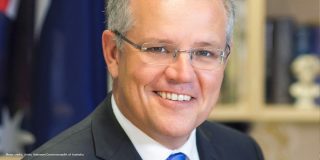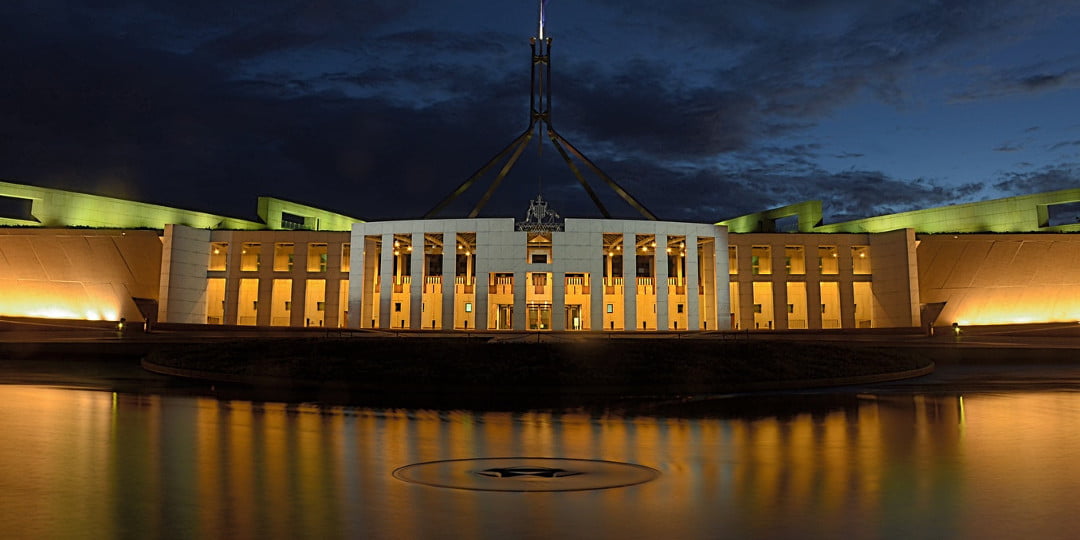Our new treasurer, Scott Morrison, stated this week that “you can’t tax your way to surplus”. It’s become something of an orthodoxy on the conservative side of politics, but when you stop to think about it, it’s a ridiculous statement. The only way the government gains revenue is by taxing people, goods and services, and businesses, so the only way the government will ever pay Australia’s debt is through taxation. The question is not whether we will use taxes to pay debt but what is the correct level of taxation that will allow us to both provide the services we value and repay the debts we have accumulated.
By international standards, tax levels in Australia are exceptionally low. The chart below shows the latest data provided by the OECD, with the figures for 2012. As you can see, total taxes collected across all levels of government amounted to just over 27% of Australia’s national income, giving us the seventh lowest tax take out of the 32 OECD nations and putting us 6.4% below the OECD average.
Ever since the rise of industrialised economies, there has been a trend for citizens to expect more and more of their governments. For example, schools, hospitals and welfare services were once run by churches and other charitable groups but are now the domain of government. In this context it is not unreasonable to suggest that as we demand more services of government, that the share of national income collected by the government as taxation will increase. If, for argument’s sake, we increased our total tax revenue to the OECD average, we would have an instantaneous surplus of around 4% of GDP, or around $66 billion. This could be used to repay our national debt more quickly or to provide increased services.
This would not damage the economy. Given debt repayments are already planned into the budget, any additional taxation could be used to continue funding existing services and to increase expenditure on other areas. In other words, the money isn’t withdrawn from the economy but circulated through it in a different fashion, and so would stimulate demand, create jobs, and more.
Scott Morrison’s mantra is not economics but ideology. The question is not whether we will tax our way to surplus, but whether we will reduce, maintain or expand the services government provides as we do so.








Ross Coleman liked this on Facebook.
James Clarke liked this on Facebook.
Philip Zylstra liked this on Facebook.
Jessica Clark liked this on Facebook.
Susan Clarke liked this on Facebook.
I understand Australia has the most generous fund for politicians in the world (can be accessed upon exit of politics rather than age related) and would be interested what other avenues of differences we have.
Sylvia Jones liked this on Facebook.
Todd Darvas liked this on Facebook.
Anne Hyde liked this on Facebook.
Meralyn Zimmer liked this on Facebook.
Spot on Scott!
Richard Burwood liked this on Facebook.